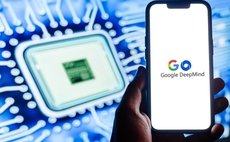'I'm sorry Dave, you have to be in a meeting now'
We should soon come to expect neuroanalytic, thought-reading AI-powered calendars to help us organise every second of our work life, according to a top Oracle executive. Appearing on Computing's...
To continue reading this article...
Join Computing
- Unlimited access to real-time news, analysis and opinion from the technology industry
- Receive important and breaking news in our daily newsletter
- Be the first to hear about our events and awards programmes
- Join live member only interviews with IT leaders at the ‘IT Lounge’; your chance to ask your burning tech questions and have them answered
- Access to the Computing Delta hub providing market intelligence and research
- Receive our members-only newsletter with exclusive opinion pieces from senior IT Leaders






















